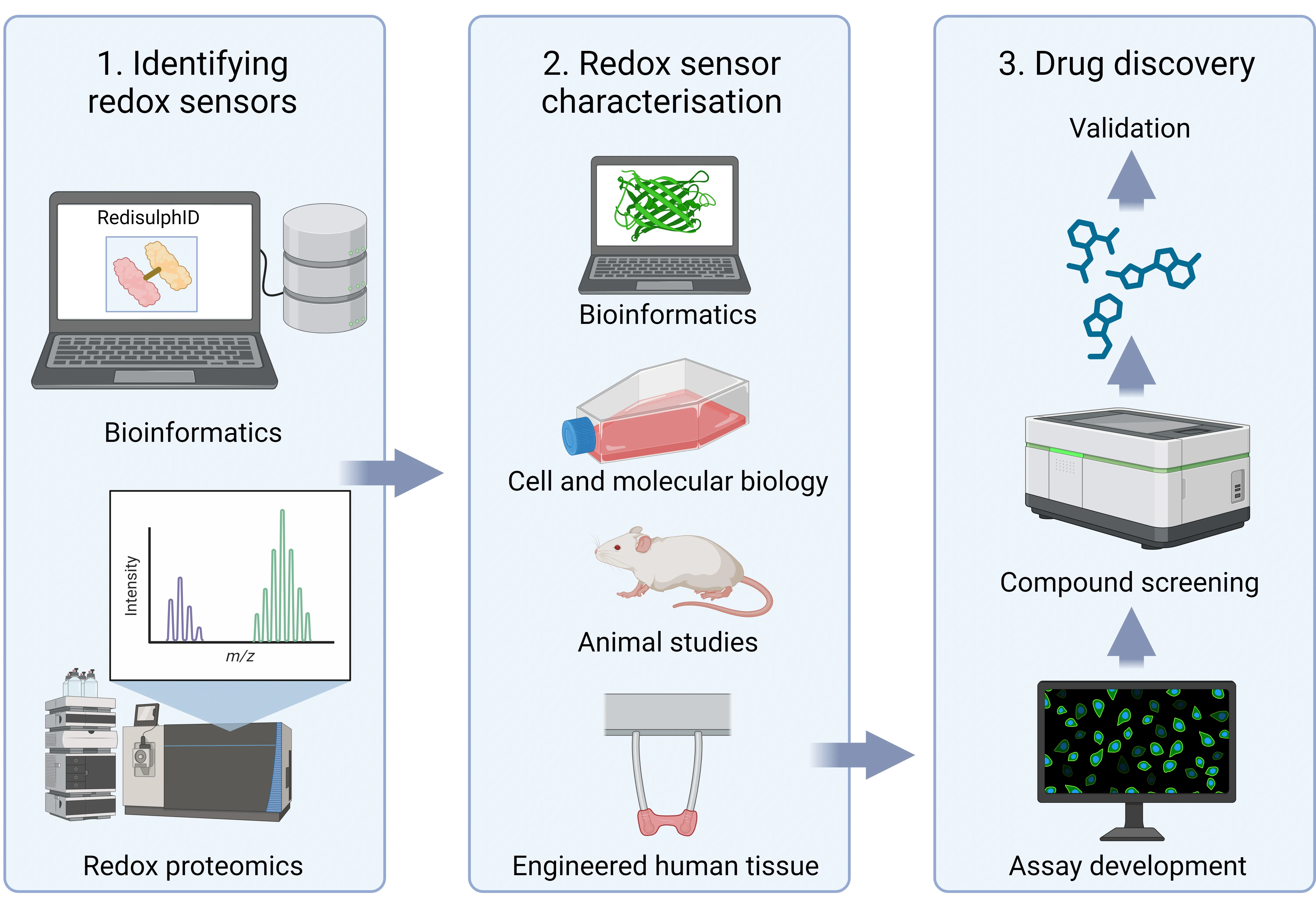The Burgoyne Lab seeks to advance our understanding of the signalling processes that maintain cardiovascular health, using an integrative approach to uncover new therapeutic targets. Our research combines interdisciplinary methods, leveraging bioinformatic, metabolic, proteomic, epigenetic, and molecular techniques to investigate signalling pathways at both the cellular and systemic levels. A central focus of our work is the identification and characterisation of novel cysteine redox sensors. These sensors play crucial roles in diverse biological functions and are highly amenable to chemical modification, making them promising therapeutic targets—especially for 'undruggable' disease-related proteins. By targeting reactive cysteine thiols, we aim to develop innovative treatments.
Our previous studies have led to significant discoveries, including the identification of a redox sensor in cGMP-dependent protein kinase that directly regulates blood pressure (Burgoyne JR, Science, 2007). This finding enabled the discovery of a new class of antihypertensive compounds (Burgoyne JR, Hypertension, 2017; Prysyazhna O, Circulation, 2019). Additionally, we uncovered a novel mechanism that links blood pressure regulation with cytosolic DNA sensing, a key player in sepsis pathophysiology, where it mediates hypotension and tissue hypoperfusion (Su J, Circulation, 2023).
Beyond redox sensors, our lab is exploring metabolic and epigenetic processes that regulate cardiovascular function. By deepening our understanding of these mechanisms, we aim to pave the way for novel and effective cardiovascular therapies.

Current PhD students:
Ms Cassy Le
Mr Milton Tomic
Current Post-docs:
Dr Rhys Anderson
Dr Pierre Coleman
Dr Angeliki Ntorla
Dr Jie Su

